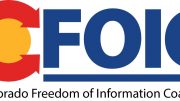By Jeffrey A. Roberts
CFOIC Executive Director
The operator of a college basketball tournament alleges in a lawsuit that the University of Northern Colorado and an athletic department official violated the Colorado Open Records Act (CORA) by denying access to text messages from the official’s personal cellphone.
In a complaint filed in Weld County District Court earlier this month, College Insider, Inc., challenges the Greeley university’s assertion that electronic written communications sent or received by Senior Associate Athletic Director David Sabolcik on his personal device are not “public records” subject to CORA because the device is not UNC’s property.
The lawsuit says Sabolcik “conducted official business” using the cellphone and that he is the custodian of the requested records. It argues that a 2005 Colorado Supreme Court ruling “made it clear that it is the content of the communication, and not its location that determines the status of being a ‘public record.’”
“It is obvious that if individuals acting in an official capacity would be able to ‘privatize’ their conduct of public business by establishing a private account or dealing with private providers of communications technologies, it would allow government officials to unilaterally create a vast and unacceptable ‘loophole’ in the requirements of CORA,” College Insider contends.

Massachusetts-based College Insider runs the CIT, a post-season basketball tournament for mid-major college programs won by the UNC men’s basketball team in 2018.
According to the lawsuit, after UNC pledged to participate in the tournament last year, Sabolcik “deliberately interfered with the process of other schools pledging to the tournament” by contacting other athletic directors and asking them pay lower rates than those set by the CIT. The suit says Sabolcik used his personal cellphone to make calls and send text messages to the other athletic directors, but that UNC denied a CORA request for those records. The complaint acknowledges that UNC did disclose electronic communications that “originated from devices that were property of UNC.”
UNC and Sabolcik haven’t yet filed a response to the lawsuit. But Nate Haas, director of university news and public relations at UNC, wrote in an email to the Colorado Freedom of Information Coalition: “While it would be inappropriate to respond to pending litigation, text messages from personal devices of employees are not public records under (Colorado Revised Statutes) Section 24-72-202(6)(a)(I) and are not maintained by the university under C.R.S. Section 24-72-202(1.1) and applicable case law.”
The first CORA provision cited by Haas pertains to the definition of public records: “all writings made, maintained, or kept” by an agency, institution or political subdivision “for use in the exercise of functions required or authorized by law or administrative rule or involving the receipt or expenditure of public funds.” The second CORA provision defines custodian to mean the person “having personal custody and control of the public records in question.”
The Colorado Supreme Court decision cited in College Insider’s lawsuit involved emails and text messages, many of them sexually explicit, between the Arapahoe County clerk and recorder and his deputy. The Rocky Mountain News sought access to all the messages, which were sent and received using county-owned equipment, but the Court determined that only those portions pertaining to public business should be disclosed.
The justices wrote: “We conclude that the General Assembly has provided that the content of a public official’s e-mail message must be examined to determine whether the e-mail addresses public functions or the receipt or expenditure of public funds to decide whether the e-mail is a ‘public record.’”
A court hearing on College Insider’s complaint has been scheduled for Feb. 21.
Follow the Colorado Freedom of Information Coalition on Twitter @CoFOIC. Like CFOIC’s Facebook page. Do you appreciate the information and resources provided by CFOIC? Please consider making a tax-deductible donation.




